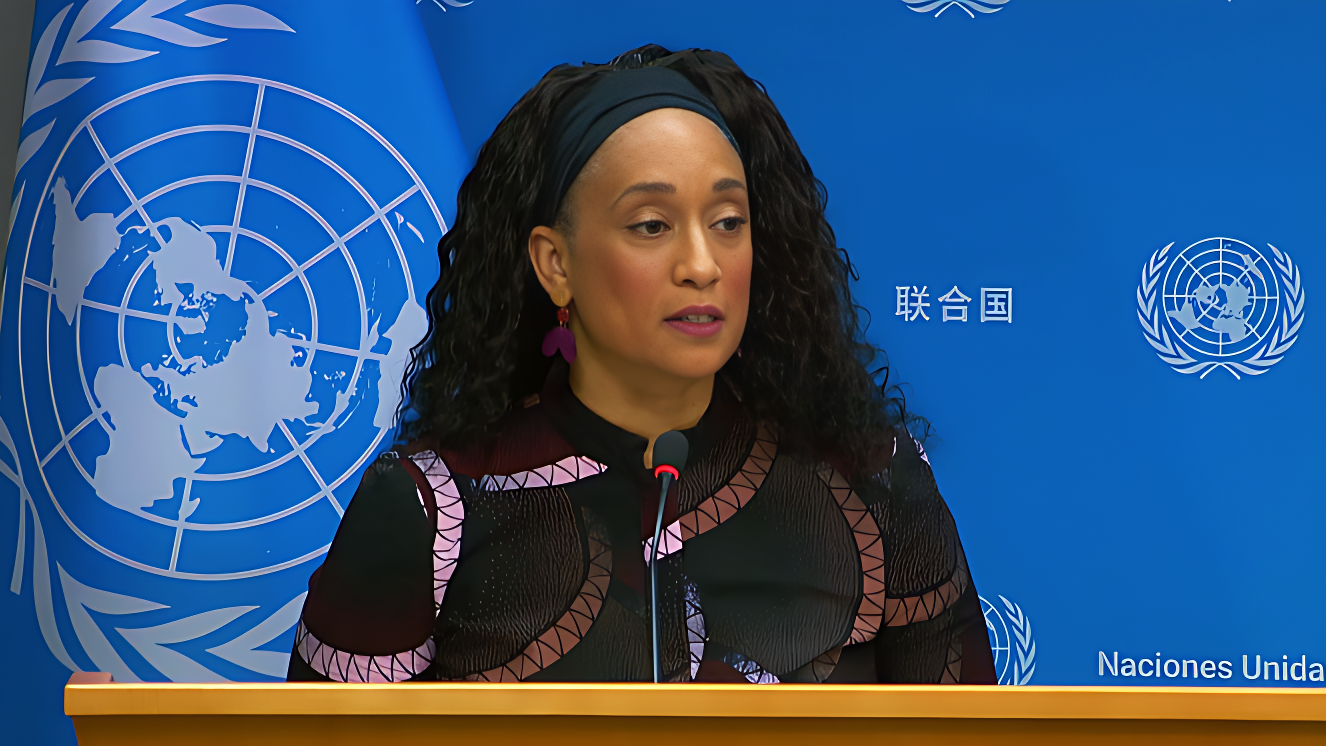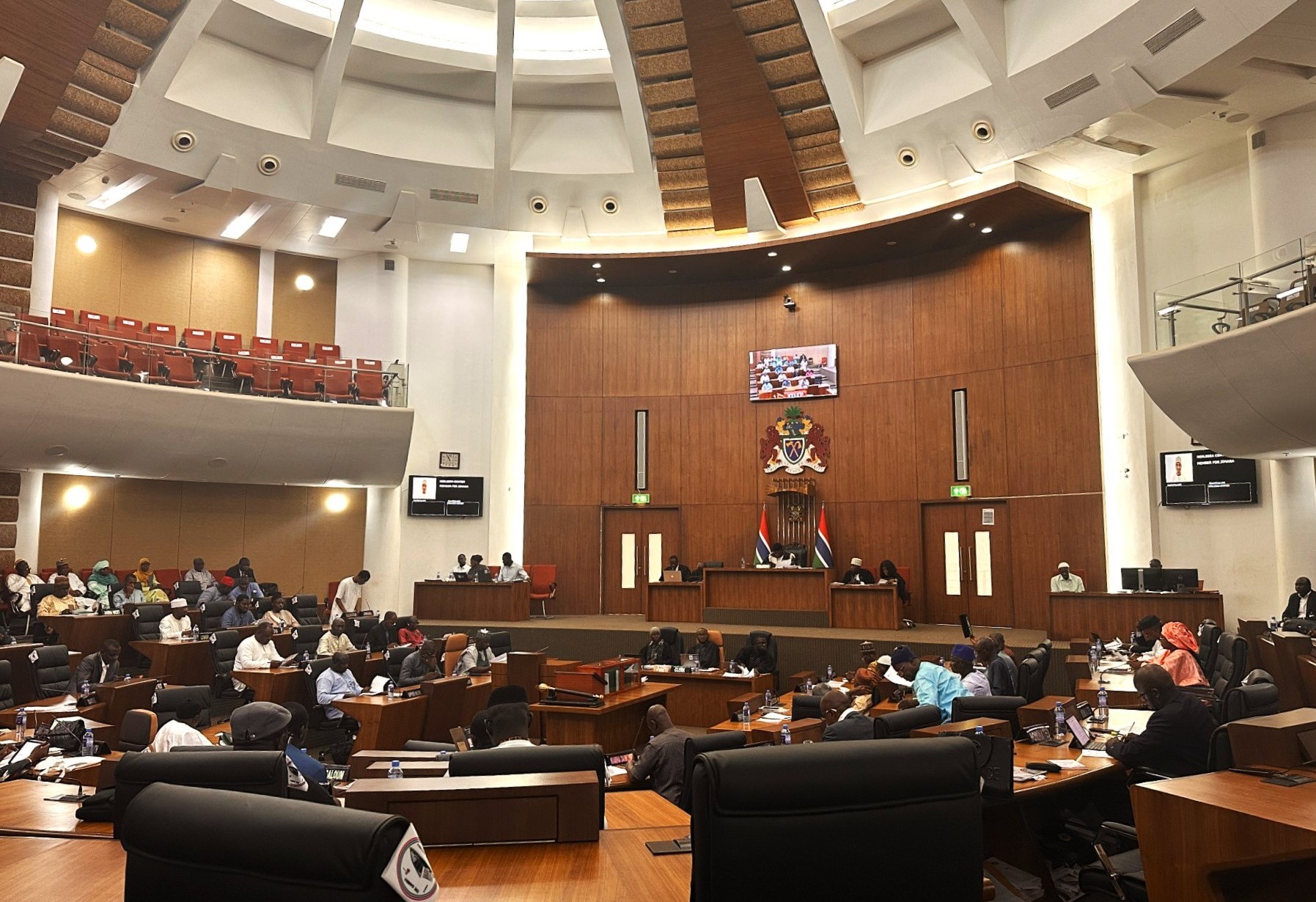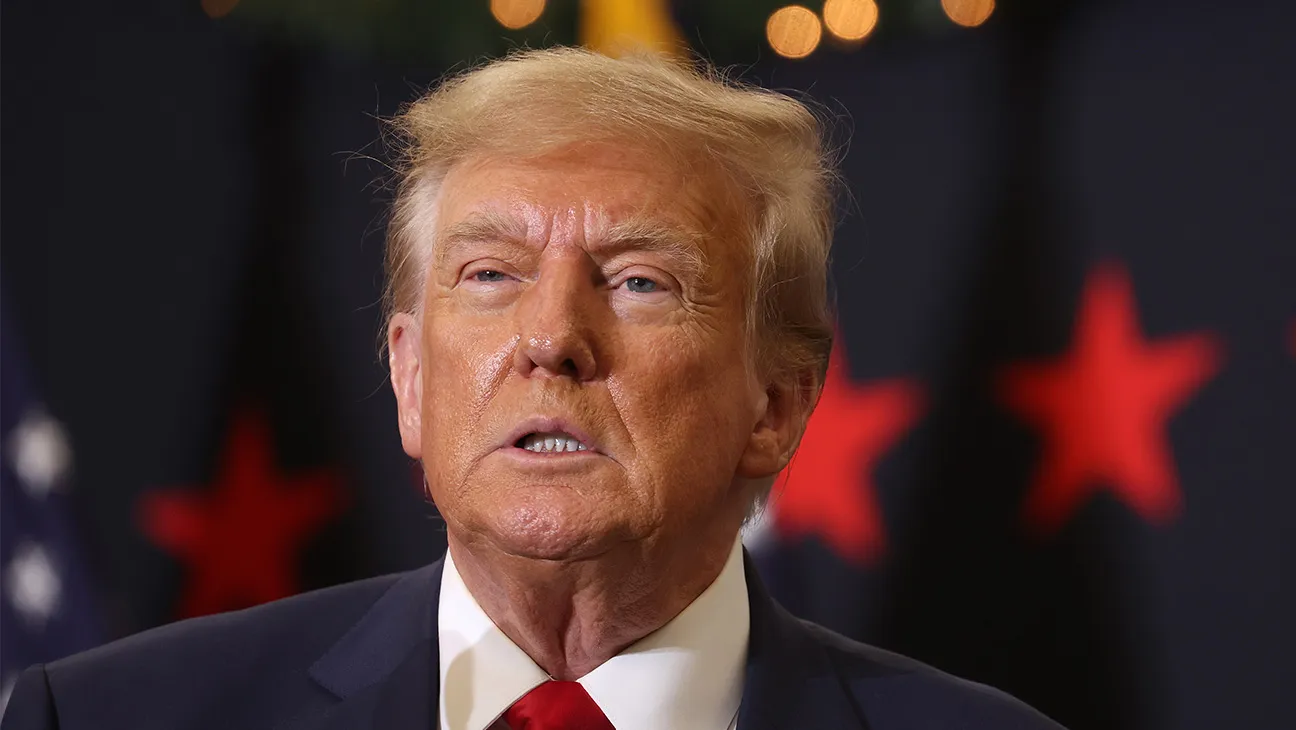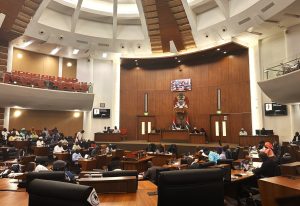Maine’s secretary of state said Thursday that former President Trump was ineligible to be on the state’s primary ballot under the 14th Amendment, becoming the second state to take such action.
Maine Secretary of State Shenna Bellows, a Democrat, said she had concluded that Trump “over the course of several months and culminating on January 6, 2021, used a false narrative of election fraud to inflame his supporters and direct them to the Capitol to prevent certification of the 2020 election and the peaceful transfer of power.”
In the 34-page decision, she also concluded that Trump “was aware of the likelihood for violence and at least initially supported its use, given that he both encouraged it with incendiary rhetoric and took no timely action to stop it.”
“Mr. Trump’s occasional requests that rioters be peaceful and support law enforcement do not immunize his actions,” she said. “A brief call to obey the law does not erase conduct over the course of months, culminating in his speech on the Ellipse. The weight of the evidence makes clear that Mr. Trump was aware of the tinder laid by his multi-month effort to delegitimize a democratic election, and then chose to light a match.”
The Colorado Supreme Court ruled that Trump should be barred from its primary ballot for the same reasons last week. An appeal to that case is expected to be heard by the Supreme Court.
The Maine decision marks the first time a state official has removed a presidential candidate via the 14th Amendment, as the Colorado decision was made by a court.
“I do not reach this conclusion lightly. Democracy is sacred,” Bellows said.
“I am mindful that no Secretary of State has ever deprived a presidential candidate of ballot access based on Section Three of the Fourteenth Amendment,” she wrote. “I am also mindful, however, that no presidential candidate has ever before engaged in insurrection.”
“The oath I swore to uphold the Constitution comes first above all, and my duty under Maine’s election laws, when presented with a Section 336 challenge, is to ensure that candidates who appear on the primary ballot are qualified for the office they seek,” she continued.
The Trump campaign denounced the decision Thursday, attacking Bellows as a “virulent leftist and a hyper-partisan Biden-supporting Democrat.”
“We are witnessing, in real-time, the attempted theft of an election and the disenfranchisement of the American voter,” Trump campaign spokesperson Steven Cheung said. “Make no mistake, these partisan election interference efforts are a hostile assault on American democracy.”
Cheung said the campaign will appeal the ruling.
Attorneys for Trump previously demanded that Bellows, a Democrat, recuse herself from the decision over whether Trump should be placed on the ballot. In the Thursday decision, Bellows said that request was “untimely.”
“Had the motion been timely, I would have determined that I could preside over this matter impartially and without bias,” she wrote. “My decision is based exclusively on the record before me, and it has in no way been influence by my political affiliation or personal views about the events of January 6, 2021.”
Debates on the merits of 14th Amendment challenges have focused on two matters, whether Trump’s actions qualify as supporting an insurrection, and whether the 14th Amendment applies to the presidency at all.
Bellows made the same determination as the Colorado Supreme Court. Citing that decision, she said that Trump’s actions do qualify, and that the amendment does apply to the presidency.
Again citing the Colorado Supreme Court’s case, Bellows also argued that the sheer complexity and unprecedented nature of the Trump case does not mean she couldn’t determine his eligibility — preemptively countering an argument against her decision.
“Complexity is not a limitation on my authority … These statutes do not suggest that I am restricted to adjudicating straightforward questions of law or fact,” she wrote. “Mr. Trump’s concerns about the inadequacy of these proceedings are therefore without merit.”
Other states have turned down similar challenges to Trump’s ballot qualifications.
In Minnesota, the state supreme court rejected 14th Amendment claims as untimely, and requested objectors wait until the general election to contest Trump’s candidacy.
In Michigan, a state court ruled Wednesday that its Secretary of State did not have the authority to make the determination to whether Trump violated the 14th Amendment.










